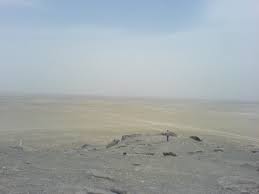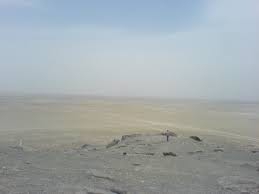 Sistan-Baluchestan province in southeast Iran, bordering Pakistan and Afghanistan, has been affected by severe droughts in the past 11 years.
Sistan-Baluchestan province in southeast Iran, bordering Pakistan and Afghanistan, has been affected by severe droughts in the past 11 years.Zistboom:�Sistan-Baluchestan province in southeast Iran, bordering Pakistan and Afghanistan, has been affected by severe droughts in the past 11 years.
Hirmand or Helmand River on the borders of Iran and Afghanistan is a potential point of conflict over scarce water resources, Mehr News Agency reported.
The blocking of water from the river to Iran by Afghanistan has left Hamoun Lake completely dry and this is the main reason for the drought.
Hamoun Lake is the seventh international and the largest freshwater wetland of the world.
The dispute on sharing the waters of Helmand River has a long history. It arose in the mid-19th century after the Herat region was separated from Iran and integrated into Afghanistan.
The region, which was a large supplier of grain in the past, is presently facing many difficulties related to farming, livestock breeding and fishery.
The lake hosted more than 1 million migratory birds annually before the past two decades.
The flow of Helmand River into Iran has been repeatedly dammed by Afghanistan in the past few years, inflicting many economic, social, environmental damage to Sistan-Baluchestan province.
The disappearance of Hamoun Lake has left 15,000 fishers of the region jobless and caused the women, who used reeds from the lake for producing handicrafts, to lose their sources of income.
The recent droughts and the failure of Afghanistan in implementing the resolution issued by Delta Protection Commission (comprising experts from Canada, USA and Chile) and the water treaty signed by the two countries on 13 March 1973 are the main factors that caused Helmand River to dry up.
The mission of the Delta Protection Commission is to protect, maintain and where possible, restore the overall quality of the Delta environment consistent with the Delta Protection Act, and the Land Use and Resource Management Plan for the Primary Zone.
Many experts believe that Iran has been deprived of its legal share of water from Helmand River.
Gary Lewis, UN resident coordinator in Iran, who recently paid a visit to Sistan-Baluchestan province, promised to follow up the issue of securing Iran�s legal share of water from Helmand River.
The parliament also recently called on the Energy Ministry and Department of Environment to make all-out efforts to revive Hamoun Lake.
By Zist Boom
The Iran Project is not responsible for the content of quoted articles.











